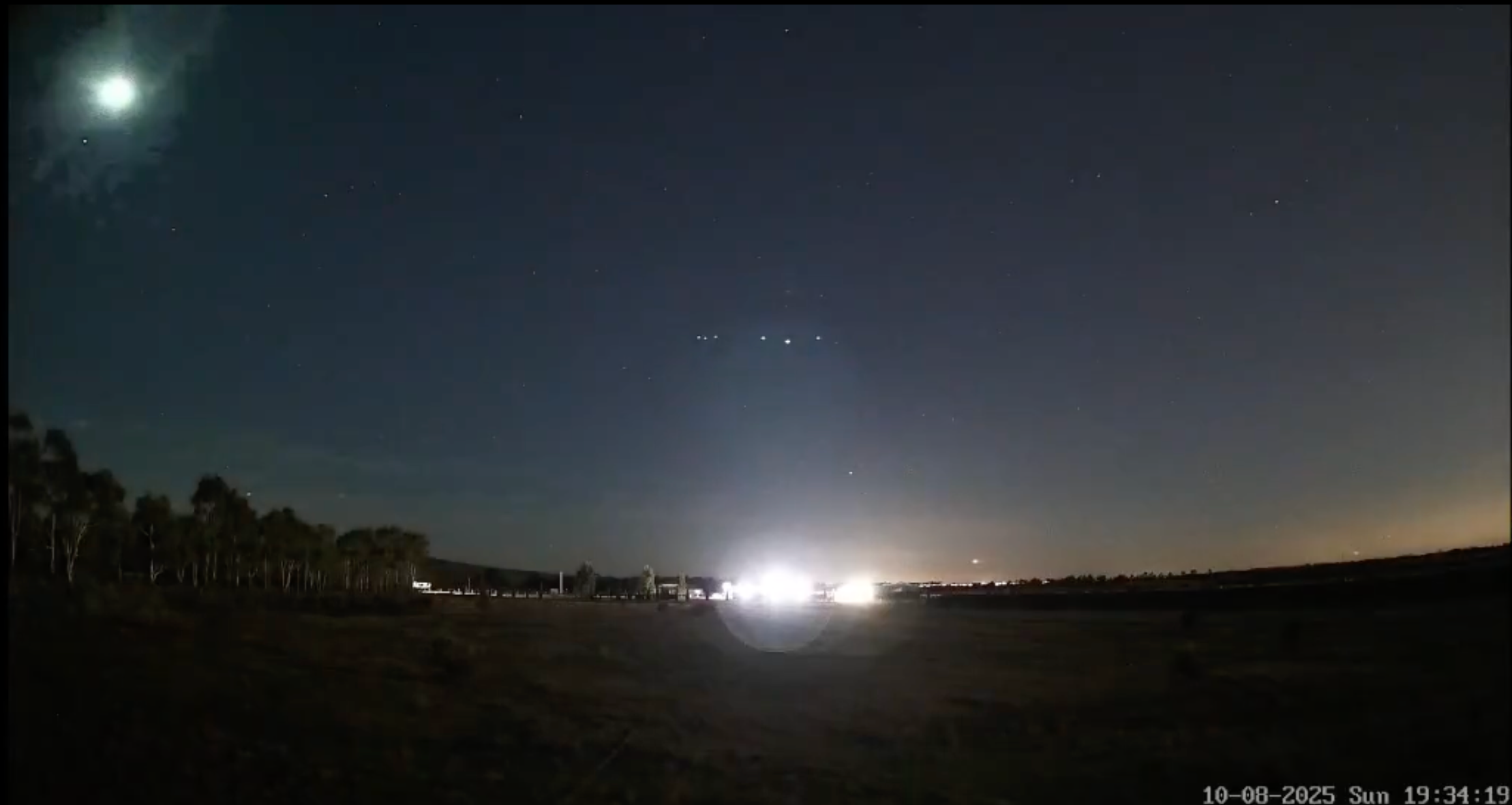People in Australia’s Victoria reported a loud sonic boom that rattled houses as a meteor streaked past the night sky on Sunday.
Footage of the space rock burning brightly was shared on social media by residents in Ballarat and Bendigo from 7:30pm local time.
They reported hearing a loud sonic boom about a minute after the fireball was seen on community Facebook pages.
“A very bright and slow fireball was observed and video recorded over Victoria, August 10, 9:34 UT,” the International Meteor Organisation, a coalition of amateur meteor observers, said in a post on Facebook.
“Bendigo just got hit by a meteor! Felt all over Bendigo! Shook our house. BOOM,” one resident wrote.
The Australian government’s earthquake monitoring agency said in an X post that it had received multiple reports of tremors around the time the meteor passed by, but ruled out any seismic event.
“Geoscience Australia received multiple felt reports from Bendigo, VIC at around 7:40pm, however no seismic event was observed,” the agency said.

Amateur astronomer David Finlay, admin of Australian Meteor Reports, suspected a large chunk of the object likely survived to the ground.
“To be able to hear the sonic boom loudly from the ground suggests that quite a big chunk of the meteor was pretty close to the ground,” associate professor Michael Brown from Monash University’s school of physics and astronomy told The Age.
“And that possibly means there’s chunks of the meteorite that actually made it down to the ground and optimistically, might be found.”
Experts ruled out the possibility of the fireball being space junk, finding it was most likely a meteor whose fragments might have landed somewhere between Bendigo and Ballarat.
“A manual reduction on the fireball over Victoria at 9:34 UT indicates a fall site to the northeast of Maryborough, with a final visual height of 9 km, so almost definitely a meteorite fall,” the Ballarat municipality observatory said.
“There were numerous reports of sound, adding confidence that this is a dropper. This maybe refined if further good quality data becomes available.”
The fireball’s sighting coincided with the Perseids meteor shower, anticipated to be the best of the year, producing a dazzling display of shooting stars.
“With swift and bright meteors, Perseids frequently leave long ‘wakes’ of light and colour behind them as they streak through the Earth’s atmosphere,” Nasa’s Monika Luabeya noted in a blog post.
However, experts ruled out the possibility of the Victoria fireball being part of any meteor shower such as the Perseids or Alpha Capricornids.
“The reason it’s not a Perseid is because the ‘radiant’ – the point the meteors appear to radiate out from – never rises above the horizon for us at the latitude of Victoria,” astronomer Perry Vlahos told The Age.




